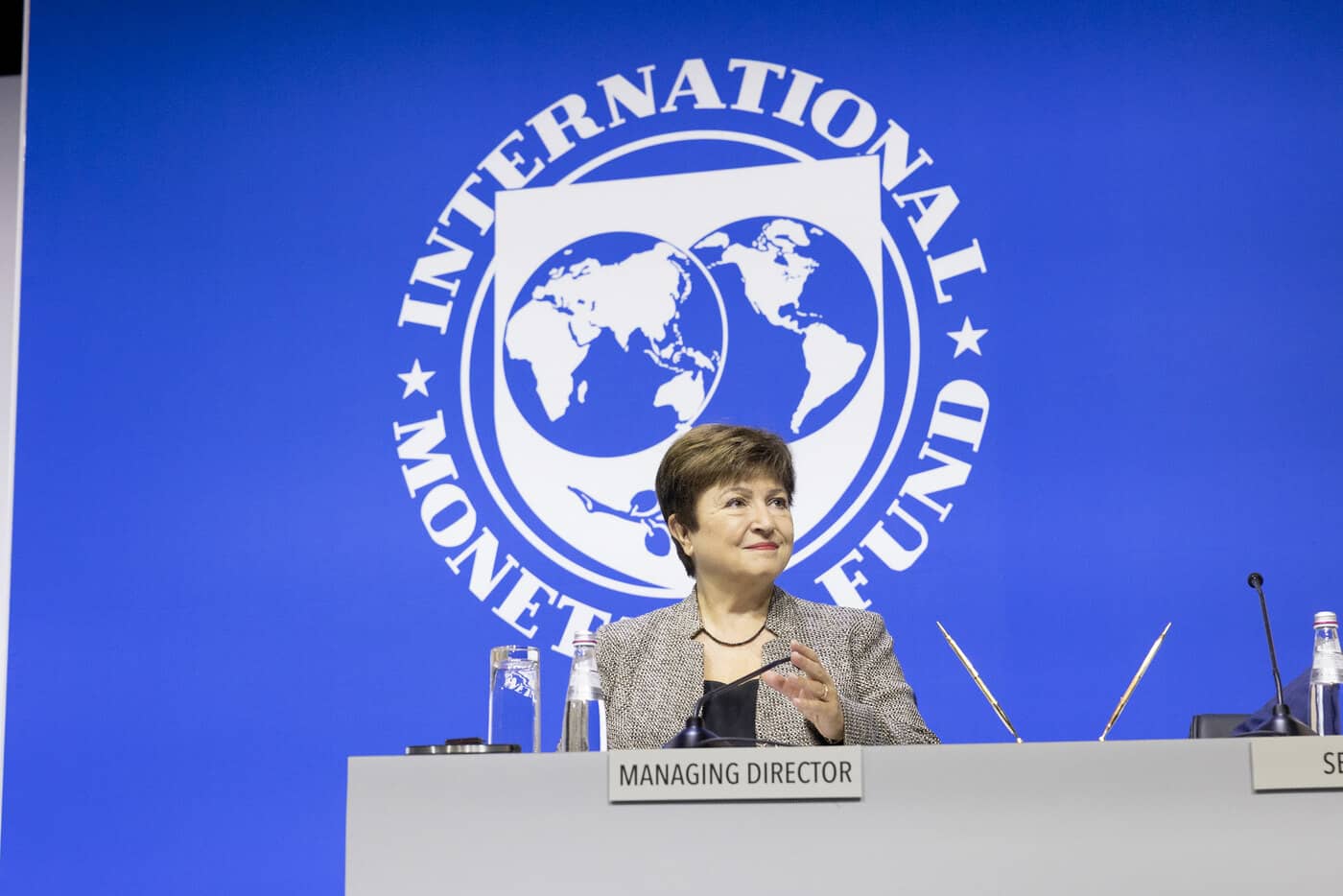
The International Monetary Fund (IMF) has once again opposed the acceptance of crypto as a legal tender. Kristalina Georgieva, Managing Director of the IMF, spoke about crypto regulations on the sidelines of the G-20 meeting for Central Bank Governors (FMCBG) and Finance Ministers in Bangalore on Saturday, chaired by India. Banning private cryptocurrencies should be an option if regulations fail or are too slow to implement, she said.
She told to reporters:
There has to be more regulation.
India’s chairmanship of the G20 comes at a time when South Asian neighbors Bangladesh, Pakistan, and Sri Lanka are seeking emergency funding from the IMF due to the economic crisis caused by the Russia-Ukraine war and the Covid-19 pandemic. However, there are some disagreements among countries on debt restructuring for low- and middle-income countries, Georgieva stated.
Finance minister Nirmala Sitharaman and the IMF chief agreed that apart from debt restructuring, crypto regulation is one of India’s priorities. Georgieva expressed her support for India’s attitude towards private cryptocurrencies and other digital assets. She said there is a need for stronger enforcement of global regulations for such assets.
The IMF chief emphasized:
“There has to be very strong push for regulation.”
She further added:
If regulation fails, if you’re slow to do it, then we should not take off the table banning those assets, because they may create financial stability risk.
Georgieva explained that the IMF, the Bank for International Settlements (BIS), and the Financial Stability Board (FSB) are ready to create a regulatory framework for cryptocurrencies that are not issued by central banks or governments.
She insisted:
“We have to differentiate between central bank digital currencies [CBDCs] that are backed by the state and stablecoins, and crypto assets that are privately issued.”
IMF Executive Board Supports The Crypto Framework, Including No Crypto As Legal Tender
On Thursday, the IMF announced the output of discussions held by its executive board directors on a paper titled “Effective Policy Elements for Crypto Assets.” The document sets out a framework of nine policy principles that address regulatory, macro-financial, legal, and international coordination issues.
The first element of the framework contains a specific instruction, which reads:
“Safeguard monetary sovereignty and stability by strengthening monetary policy frameworks and do not grant crypto assets official currency or legal tender status.”
The executive board expressed agreement with the policies in the paper and specifically supported its stance on crypto as a legal tender. Meanwhile, other elements include adopting “unambiguous tax treatment of crypto-assets”, protecting against “excessive capital flow volatility” and imposing “prudence, conduct and oversight requirements on all crypto market participants”.
But, most board directors agreed that a total complete on crypto should not be ruled out.
The IMF pointed out:
Directors agreed that strict bans are not the first-best option, but that targeted restrictions could apply, depending on domestic policy objectives and where authorities face capacity constraints.
Meanwhile, Georgieva again reiterated the summary of the first element of the framework on Saturday.
She said:
Crypto assets are nothing, they cannot be accepted as legal tender.
The regulatory framework can aid members to create a consistent, comprehensive, and coordinated policy response to digital assets, IMF said.
The IMF stated:
By adopting the framework, policymakers can better mitigate the risks posed by crypto assets while also harnessing the potential benefits of the technological innovation associated with it.








